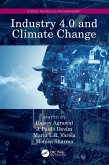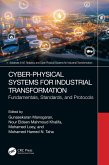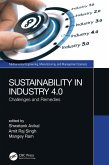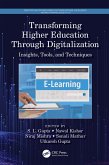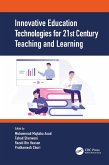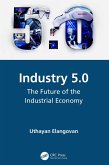Industry 4.0 and Climate Change (eBook, ePUB)
Redaktion: Agrawal, Rajeev; Sharma, Monica; Varela, Maria L. R.; Davim, J. Paulo
54,95 €
54,95 €
inkl. MwSt.
Sofort per Download lieferbar

27 °P sammeln
54,95 €
Als Download kaufen

54,95 €
inkl. MwSt.
Sofort per Download lieferbar

27 °P sammeln
Jetzt verschenken
Alle Infos zum eBook verschenken
54,95 €
inkl. MwSt.
Sofort per Download lieferbar
Alle Infos zum eBook verschenken

27 °P sammeln
Industry 4.0 and Climate Change (eBook, ePUB)
Redaktion: Agrawal, Rajeev; Sharma, Monica; Varela, Maria L. R.; Davim, J. Paulo
- Format: ePub
- Merkliste
- Auf die Merkliste
- Bewerten Bewerten
- Teilen
- Produkt teilen
- Produkterinnerung
- Produkterinnerung

Bitte loggen Sie sich zunächst in Ihr Kundenkonto ein oder registrieren Sie sich bei
bücher.de, um das eBook-Abo tolino select nutzen zu können.
Hier können Sie sich einloggen
Hier können Sie sich einloggen
Sie sind bereits eingeloggt. Klicken Sie auf 2. tolino select Abo, um fortzufahren.

Bitte loggen Sie sich zunächst in Ihr Kundenkonto ein oder registrieren Sie sich bei bücher.de, um das eBook-Abo tolino select nutzen zu können.
This book reflects on the consequences of the transition to Industry 4.0 for climate change. The book presents a systemic overview of the current negative consequences of digitization for the environment, presents a new outline of the energy domain and expected changes in environmental pollution levels under Industry 4.0.
- Geräte: eReader
- mit Kopierschutz
- eBook Hilfe
Andere Kunden interessierten sich auch für
![Industry 4.0 and Climate Change (eBook, PDF) Industry 4.0 and Climate Change (eBook, PDF)]() Industry 4.0 and Climate Change (eBook, PDF)54,95 €
Industry 4.0 and Climate Change (eBook, PDF)54,95 €![Cyber-Physical, IoT, and Autonomous Systems in Industry 4.0 (eBook, ePUB) Cyber-Physical, IoT, and Autonomous Systems in Industry 4.0 (eBook, ePUB)]() Cyber-Physical, IoT, and Autonomous Systems in Industry 4.0 (eBook, ePUB)47,95 €
Cyber-Physical, IoT, and Autonomous Systems in Industry 4.0 (eBook, ePUB)47,95 €![Cyber-Physical Systems for Industrial Transformation (eBook, ePUB) Cyber-Physical Systems for Industrial Transformation (eBook, ePUB)]() Cyber-Physical Systems for Industrial Transformation (eBook, ePUB)47,95 €
Cyber-Physical Systems for Industrial Transformation (eBook, ePUB)47,95 €![Sustainability in Industry 4.0 (eBook, ePUB) Sustainability in Industry 4.0 (eBook, ePUB)]() Sustainability in Industry 4.0 (eBook, ePUB)48,95 €
Sustainability in Industry 4.0 (eBook, ePUB)48,95 €![Transforming Higher Education Through Digitalization (eBook, ePUB) Transforming Higher Education Through Digitalization (eBook, ePUB)]() Transforming Higher Education Through Digitalization (eBook, ePUB)47,95 €
Transforming Higher Education Through Digitalization (eBook, ePUB)47,95 €![Innovative Education Technologies for 21st Century Teaching and Learning (eBook, ePUB) Innovative Education Technologies for 21st Century Teaching and Learning (eBook, ePUB)]() Innovative Education Technologies for 21st Century Teaching and Learning (eBook, ePUB)50,95 €
Innovative Education Technologies for 21st Century Teaching and Learning (eBook, ePUB)50,95 €![Industry 5.0 (eBook, ePUB) Industry 5.0 (eBook, ePUB)]() Uthayan ElangovanIndustry 5.0 (eBook, ePUB)97,95 €
Uthayan ElangovanIndustry 5.0 (eBook, ePUB)97,95 €-
-
-
This book reflects on the consequences of the transition to Industry 4.0 for climate change. The book presents a systemic overview of the current negative consequences of digitization for the environment, presents a new outline of the energy domain and expected changes in environmental pollution levels under Industry 4.0.
Dieser Download kann aus rechtlichen Gründen nur mit Rechnungsadresse in A, B, BG, CY, CZ, D, DK, EW, E, FIN, F, GR, HR, H, IRL, I, LT, L, LR, M, NL, PL, P, R, S, SLO, SK ausgeliefert werden.
Produktdetails
- Produktdetails
- Verlag: Taylor & Francis eBooks
- Seitenzahl: 296
- Erscheinungstermin: 17. Oktober 2022
- Englisch
- ISBN-13: 9781000728590
- Artikelnr.: 65481454
- Verlag: Taylor & Francis eBooks
- Seitenzahl: 296
- Erscheinungstermin: 17. Oktober 2022
- Englisch
- ISBN-13: 9781000728590
- Artikelnr.: 65481454
- Herstellerkennzeichnung Die Herstellerinformationen sind derzeit nicht verfügbar.
Dr. Rajeev Agrawal received his ME in 2001 from MNNIT, Allahabad, and PhD in 2012 from BIT, Mesra. He is presently working as Associate Professor in the Department of Mechanical Engineering at MNIT, Jaipur. He has more than 20 years of teaching and research experience. Dr. Rajeev Agrawal has been actively involved in research & development (R&D) activities in the engineering space. He is actively involved in bringing industry orientation to the engineering education system in India working with several industries, statutory bodies and other organizations. Dr. Rajeev Agrawal's currently managing research projects include Sustainability in Manufacturing, Lean Six Sigma, Supply Chain Design and Reconfigurable Manufacturing System (RMS). One of the objectives of his current research is to address conversion quickly for the production of new products by providing customized flexibility and can be improved, upgraded and reconfigured in response to fluctuating demands for automotive companies situated in India. Dr. Agrawal has published more than 70 research articles in leading international journals and international conferences including the Computers and Industrial Engineering, International Journal of Advanced Manufacturing Technology, and Journal of Enterprise and Information Management. He has authored/co-authored more than 10 book chapters in leading books including Sustainable Manufacturing and Intelligent Manufacturing. He is serving as an editorial board member of International Journal of Business and System Research and an active reviewer for more than 30 journals from publishers like Springer, Sage and Elsevier. His current research studies include sustainable supply chain, machine learning, optimization algorithms, life cycle assessment, Industry 4.0 and manufacturing systems. Dr. Monica Sharma is Head and Associate Professor in the Department of Management Studies at the Malaviya National Institute of Technology, Jaipur. She is also the coordinator of the MNIT Innovation and Incubation Centre (MIIC), a DSTGOI-sponsored Technology Business Incubator sanctioned by MHRD, looking after all the activities related to incubation and effective management of the TBI at MNIT, Jaipur. She earned her BE in Mechanical Engineering from Rajasthan University; earned MBA in Production and Operations Management from FMS Udaipur, Rajasthan; and completed PhD in Operations Management from the Birla Institute of Technology and Science, Pilani, Rajasthan. She is a certified quality engineer from IIQM Jaipur and is a certified six sigma green belt from ISI Delhi. She has also undertaken various projects from UGC, DST (GoI, New Delhi). She has organized more than 30 workshops/stttp/fdp related to entrepreneurship development, sustainable manufacturing, etc. She has supervised more than six PhDs along with four PhDs ongoing and has written several books as well. She is also a member of IIIE, member of AIMS International, life time member of Indian Institute of Industrial Engineering and member of Indian Society of Ergonomics. She has published several journal articles in reputed journals like International Journal of Occupational Safety and Ergonomics, Journal of Cleaner Production and The TQM Magazine along with research articles in international conferences. She is also a reviewer of various reputed journals like Measuring Business Excellence and Lean Six Sigma since last five years. Her research interests are industrial engineering, lean manufacturing, materials management, operations management, operation research, total quality management, manufacturing excellence, sustainable manufacturing and Six Sigma. Dr. Maria Leonilde Rocha Varela received her PhD degree in Industrial Engineering and Management from the University of Minho, Portugal, in 2007. She is Assistant Professor in the Department of Production and Systems at the University of Minho. Her main research interests are in Manufacturing Management, Production Planning and Control, Optimization, Artificial Intelligence, Meta-heuristics, Scheduling, Web-based Systems, Services and Technologies, mainly for supporting Engineering and Industrial Management, Collaborative Networks, Decision-Making Models, Methods and Systems, and Virtual and Distributed Enterprises. She has published more than 150 refereed scientific papers in international conferences and in international scientific books and journals, and indexed in the Web of Science and/or in the Scopus data bases. She coordinates R&D projects in the area of Production and Systems Engineering, namely concerning the development of web-based platforms and decision support models, methods and systems. She is a frequent paper reviewer for several journals, such as the Journal of Computer Integrated Manufacturing, Journal of Decision Systems, International Journal of Management and Fuzzy Systems, International Journal of Sustainability Management and Information Technologies, International Journal of Intelligent Enterprise, International Journal of Decision Support Systems Technology, Management and Production Engineering Review, Mathematical Problems in Engineering and Journal of Robotics. Moreover, she has been improving international scientific collaborations, mainly in terms of projects and special issues proposals and publications with colleagues from other national and foreign institutions, such as VSB-Technick Univerzita Ostrava; University of Belgrade; International Islamic University Malaysia; SimTech Simulation Technology; Malek Ashtar University of Technology; University of Macedonia; ED&F Man Commodities West Africa; University of Liverpool; Universidad de La Frontera; University of Poznan; Toulouse University; University of Liberec; University of Plymouth; Dalian University of Technology; VIT University; Erciyes University, Kayseri; University of Calgary; and China University of Petroleum. Her main scientific activity regarding international conferences is related to the participation as a member in organizing and scientific committees, namely in HIS-Hybrid and Intelligent Systems; NaBIC - World Congress on Nature and Biologically Inspired Computing; CaSoN-International Conference on Computational Aspects of Social Networks; EWG-ICDSST-The International Conference on Decision Support System Technology; ISDA - The International Conference on Intelligent Systems Design and Applications; WorldCist - World Conference on Information Systems and Technologies; SoCPaR - International Conference on Soft Computing and Pattern Recognition Technologies and Tools; WICT - World Congress on Information and Communication Technologies; IAS - The International Conference on Information Assurance and Security; IBICA - the International Conference on Innovations in Bio-Inspired Computing and Applications; FCTA - International Conference on Fuzzy Computation Theory and Applications; MECAHITECH - International Conference on Innovations, Recent Trends and Challenges in Mechatronics, Mechanical Engineering and New High-Tech Products Development; Manufacturing-International Scientific-Technical Conference; MESIC - Manufacturing Engineering Society International Conference; IJCCI - International Joint Conference on Computational Intelligence; and ViNOrg - International Conference on Virtual and Networked Organizations Emergent Technologies and Tools. Also noteworthy is her participation in international networks, such as Machine Intelligence Research Labs, Scientific Network for Innovation and Research Excellence (MirLabs), Euro Working Group of Decision Support Systems (EWG-DSS), Institute of Electrical and Electronics Engineers (IEEE); System, Man, and Cybernetics Society (IEEE SMC), Industrial Engineering Network (IE Network), and Institute of Industrial and Systems Engineers (IISE). Prof. J. Paulo Davim received PhD degree in Mechanical Engineering in 1997, MSc degree in Mechanical Engineering (materials and manufacturing processes) in 1991, Mechanical Engineering degree (five years) in 1986 from the University of Porto (FEUP), the Aggregate title (Full Habilitation) from the University of Coimbra in 2005 and the DSc from London Metropolitan University in 2013. He is Eur Ing by FEANI, Brussels, and Senior Chartered Engineer by the Portuguese Institution of Engineers with an MBA and Specialist title in Engineering and Industrial Management. Currently, he is Professor in the Department of Mechanical Engineering of the University of Aveiro, Portugal. He has more than 30 years of teaching and research experience in Manufacturing, Materials and Mechanical Engineering with special emphasis in Machining and Tribology. He also has interest in Management and Industrial Engineering and Higher Education for Sustainability and Engineering Education. He has guided large numbers of postdoc, PhD, and master's students and coordinated and participated in several research projects. He has received several scientific awards. He has worked as an evaluator of projects for international research agencies and an examiner of PhD thesis for many universities. He is Editor-in-Chief of several international journals, Guest Editor of journals, books Editor, book Series Editor and Scientific Advisory for many international journals and conferences. Presently, he is an editorial board member of 25 international journals and acts as a reviewer for more than 80 prestigious Web of Science journals. In addition, he has also published as editor (and co-editor) for more than 100 books and as author (and co-author) for more than 10 books, 80 chapters and 400 articles in journals and conferences (more than 200 articles in journals indexed in Web of Science core collection/h-index 45+/6000+ citations and SCOPUS/h-index 52+/8000+ citations).
1 Optimization of milling machine parameters by using Artificial Neural
Network model; 2 Facility layout optimization: Continuous improvement; 3
Multi-criteria decision analysis applications and trends in manufacturing
domain; 4 To implement Six Sigma to minimize defects in the manufacturing
of draft gear of railway wagon; 5 Changeover time reduction through SMED
approach: Case study of an Indian steel processing centre; 6 SWOT analysis
- on maintenance frameworks for SMEs; 7 Development of maintenance
framework for SMEs by an ISM approach; 8 Multi-objective parametric
optimization of wire electric discharge machining for Die Hard Steels using
supervised machine learning techniques; 9 Investigation of dragline
productivity; 10 Lean administration in the Order-to-Cash process; 11
Modelling and analysis of Lean Six Sigma framework along with its
environmental impact on the business process: A review; 12 Optimum order
allocation in a multi-supplier environment using linear programming model:
Case study on heavy industry in India; 13 Formulation of an optimal
ordering policy with quadratic demand: Weibull distribution deterioration
and partial backlogging; 14 An optimal replenishment policy with
exponential declining demand: Weibull distribution deterioration and
partial backlogging; 15 Smart materials advancements, applications and
challenges in the shift to Industry 4.0; 16 Virtual Try On: A study on the
changing dimensions of jewellery retailing through augmented reality; 17
Analysis of the barriers of blockchain adoption in Land Record System; 18
The concept of Industry 4.0: Role of ergonomics and Human Factors; 19
Carbon Nanotubes as an advanced coating material for cutting tool in
sustainable production in Industry 4.0; 20 Integrating AI with Green
Manufacturing for process industry; 21 Sustainable recycling methods for
different types of eco-friendly cutting fluids and their characteristics:
An impetus for circular economy; 22 Sustainable automobiles: Major
obstacles on the path of electrifying mobility in India, existing barriers
and challenges; 23 Development of heuristic DSS for supply chain
architecture
Network model; 2 Facility layout optimization: Continuous improvement; 3
Multi-criteria decision analysis applications and trends in manufacturing
domain; 4 To implement Six Sigma to minimize defects in the manufacturing
of draft gear of railway wagon; 5 Changeover time reduction through SMED
approach: Case study of an Indian steel processing centre; 6 SWOT analysis
- on maintenance frameworks for SMEs; 7 Development of maintenance
framework for SMEs by an ISM approach; 8 Multi-objective parametric
optimization of wire electric discharge machining for Die Hard Steels using
supervised machine learning techniques; 9 Investigation of dragline
productivity; 10 Lean administration in the Order-to-Cash process; 11
Modelling and analysis of Lean Six Sigma framework along with its
environmental impact on the business process: A review; 12 Optimum order
allocation in a multi-supplier environment using linear programming model:
Case study on heavy industry in India; 13 Formulation of an optimal
ordering policy with quadratic demand: Weibull distribution deterioration
and partial backlogging; 14 An optimal replenishment policy with
exponential declining demand: Weibull distribution deterioration and
partial backlogging; 15 Smart materials advancements, applications and
challenges in the shift to Industry 4.0; 16 Virtual Try On: A study on the
changing dimensions of jewellery retailing through augmented reality; 17
Analysis of the barriers of blockchain adoption in Land Record System; 18
The concept of Industry 4.0: Role of ergonomics and Human Factors; 19
Carbon Nanotubes as an advanced coating material for cutting tool in
sustainable production in Industry 4.0; 20 Integrating AI with Green
Manufacturing for process industry; 21 Sustainable recycling methods for
different types of eco-friendly cutting fluids and their characteristics:
An impetus for circular economy; 22 Sustainable automobiles: Major
obstacles on the path of electrifying mobility in India, existing barriers
and challenges; 23 Development of heuristic DSS for supply chain
architecture
1 Optimization of milling machine parameters by using Artificial Neural
Network model; 2 Facility layout optimization: Continuous improvement; 3
Multi-criteria decision analysis applications and trends in manufacturing
domain; 4 To implement Six Sigma to minimize defects in the manufacturing
of draft gear of railway wagon; 5 Changeover time reduction through SMED
approach: Case study of an Indian steel processing centre; 6 SWOT analysis
- on maintenance frameworks for SMEs; 7 Development of maintenance
framework for SMEs by an ISM approach; 8 Multi-objective parametric
optimization of wire electric discharge machining for Die Hard Steels using
supervised machine learning techniques; 9 Investigation of dragline
productivity; 10 Lean administration in the Order-to-Cash process; 11
Modelling and analysis of Lean Six Sigma framework along with its
environmental impact on the business process: A review; 12 Optimum order
allocation in a multi-supplier environment using linear programming model:
Case study on heavy industry in India; 13 Formulation of an optimal
ordering policy with quadratic demand: Weibull distribution deterioration
and partial backlogging; 14 An optimal replenishment policy with
exponential declining demand: Weibull distribution deterioration and
partial backlogging; 15 Smart materials advancements, applications and
challenges in the shift to Industry 4.0; 16 Virtual Try On: A study on the
changing dimensions of jewellery retailing through augmented reality; 17
Analysis of the barriers of blockchain adoption in Land Record System; 18
The concept of Industry 4.0: Role of ergonomics and Human Factors; 19
Carbon Nanotubes as an advanced coating material for cutting tool in
sustainable production in Industry 4.0; 20 Integrating AI with Green
Manufacturing for process industry; 21 Sustainable recycling methods for
different types of eco-friendly cutting fluids and their characteristics:
An impetus for circular economy; 22 Sustainable automobiles: Major
obstacles on the path of electrifying mobility in India, existing barriers
and challenges; 23 Development of heuristic DSS for supply chain
architecture
Network model; 2 Facility layout optimization: Continuous improvement; 3
Multi-criteria decision analysis applications and trends in manufacturing
domain; 4 To implement Six Sigma to minimize defects in the manufacturing
of draft gear of railway wagon; 5 Changeover time reduction through SMED
approach: Case study of an Indian steel processing centre; 6 SWOT analysis
- on maintenance frameworks for SMEs; 7 Development of maintenance
framework for SMEs by an ISM approach; 8 Multi-objective parametric
optimization of wire electric discharge machining for Die Hard Steels using
supervised machine learning techniques; 9 Investigation of dragline
productivity; 10 Lean administration in the Order-to-Cash process; 11
Modelling and analysis of Lean Six Sigma framework along with its
environmental impact on the business process: A review; 12 Optimum order
allocation in a multi-supplier environment using linear programming model:
Case study on heavy industry in India; 13 Formulation of an optimal
ordering policy with quadratic demand: Weibull distribution deterioration
and partial backlogging; 14 An optimal replenishment policy with
exponential declining demand: Weibull distribution deterioration and
partial backlogging; 15 Smart materials advancements, applications and
challenges in the shift to Industry 4.0; 16 Virtual Try On: A study on the
changing dimensions of jewellery retailing through augmented reality; 17
Analysis of the barriers of blockchain adoption in Land Record System; 18
The concept of Industry 4.0: Role of ergonomics and Human Factors; 19
Carbon Nanotubes as an advanced coating material for cutting tool in
sustainable production in Industry 4.0; 20 Integrating AI with Green
Manufacturing for process industry; 21 Sustainable recycling methods for
different types of eco-friendly cutting fluids and their characteristics:
An impetus for circular economy; 22 Sustainable automobiles: Major
obstacles on the path of electrifying mobility in India, existing barriers
and challenges; 23 Development of heuristic DSS for supply chain
architecture

